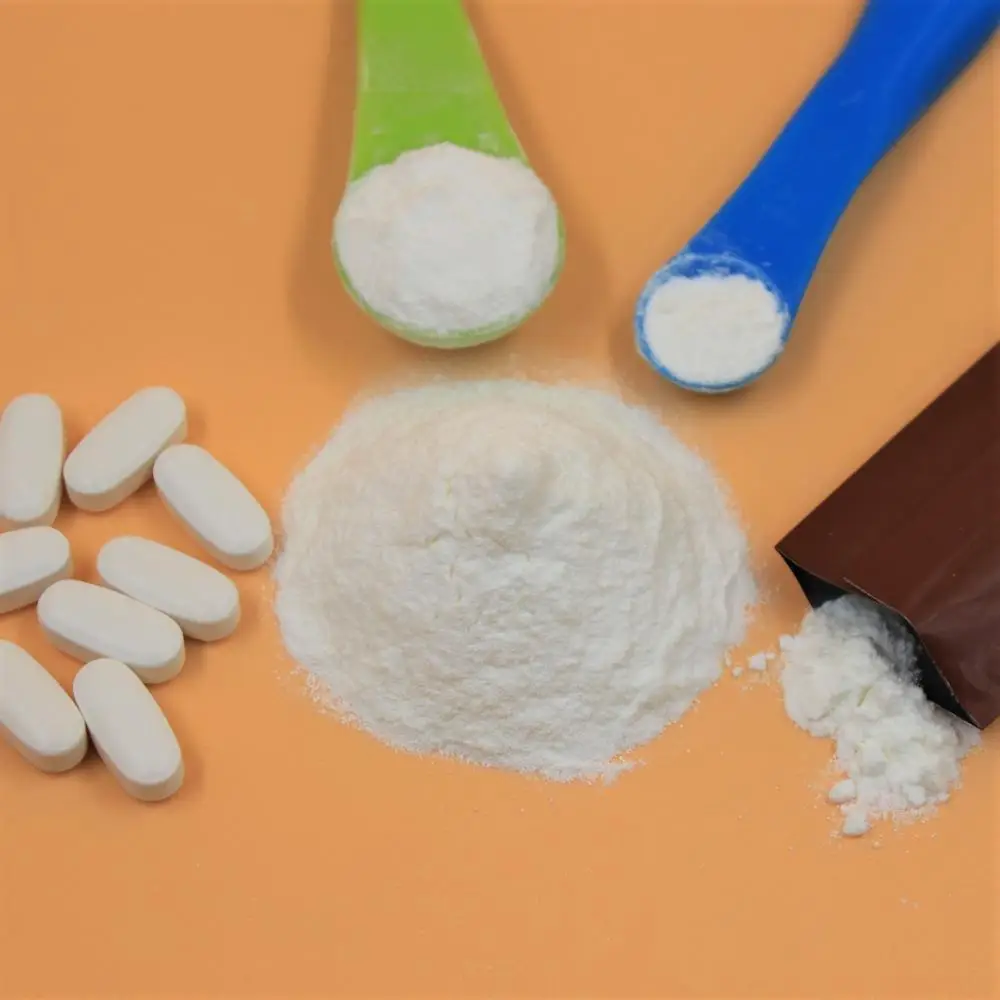
5 Citicoline (CDP-Choline) Benefits, Dosage & Side Effects
Citicoline is praised for cognition-enhancing properties one of the young and older alike. Clinical studies confirmed some of its promoted benefits, revealed other sudden perks, but also pointed to significant constraints. Read on for an ultimate breakdown of citicoline benefits, dosage, and security profile.
What is Citicoline?
Citicoline (cytidine-5-diphosphocholine, CDP-choline) is crucial for the production of phospholipids like phosphatidylcholine. These molecules construct cell membranes and protective nerve coatings in the body.
Citicoline is a much more complex molecule than normal choline, as well as alpha-GPC, but it’s identical to what your mind naturally makes. To prevent confusion, scientists chose to call it”citicoline” when given as a treatment and”CDP-choline” when it is produced in the body.
Once ingested, it releases two compounds: cytidine and choline. After they pass the blood-brain barrier, neurons in the brain utilize them to make citicoline and other phospholipids.
Choline promotes acetylcholine along with other neurotransmitters that keep the nervous system functioning smoothly. Your system transforms citicoline into lots of other valuable compounds. Because of this, citicoline might have more benefits and a better side-effects profile compared to normal choline.

Snapshot
Proponents:
- Boosts cognition
- Prevents brain damage
- Might help with depression and drug addiction
- Supports stroke recovery
- Enhances vision
Skeptics:
- Most benefits lack more powerful clinical evidence
- Long-term use may put a strain on the kidneys
- Not Acceptable for children and pregnant girls
The Way It Works
Citicoline increases the production of neurotransmitters and mobile building blocks. Apart from acetylcholine, it also boosts norepinephrine and dopamine in the brain.
It may improve brain blood circulation and stimulate mitochondria to produce more energy.
Sufficient levels of CDP-choline preserve phosphatidylcholine and sphingomyelin, which construct the protective neural sheet known as myelin. Citicoline also inhibits the amino acid phospholipase A2 and promotes the master antioxidant glutathione.
All in all, citicoline works by balancing hormones and protecting the nervous system from cognitive and age-related damage.
Dietary Sources
The body creates citicoline out of cytidine and choline. The best way to increase the levels of citicoline through meals would be to eat enough food resources that provide equally.
Choline-rich meals comprise:
- Organ meats (liver)
- Eggs
- Chicken
- Fish
- Whole grains
- Beans
Cytidine, an RNA nucleoside, is most concentrated in meat (especially organ meats); it is also found in colostrum.
Citicoline supplements (Cognizin, Somazina) are other possible sources of additional choline, along with:
- Choline
- Alpha-GPC
- Phosphatidylcholine
- Lecithin
CDP-Choline vs. Alpha-GPC
Although the two CDP-choline and alpha-GPC provide choline and discuss several health advantages, the body breaks down and uses them differently.
CDP-choline releases choline, cytidine, and other metabolites. It can also be transformed into phosphatidylcholine, which the brain uses to make acetylcholine or to build cell membranes. Alpha-GPC more directly provides choline for the production of acetylcholine.
Subsequently, CDP-choline includes a wider array of possible benefits, but alpha-GPC may get an edge in boosting physical and mental performance.
Citicoline Health Benefits
Possibly Effective:
1) Cognitive Enhancement
Age-Related Cognitive Loss
Cognition tends to diminish with aging, because of decreased brain blood circulation or other causes. A review of 14 clinical trials concluded that CDP-choline could improve memory and behavior in people with mild to moderate cognitive impairment, including people with poor brain flow.
According to the data from over 2,800 older individuals, memory problems vanished in 21% and improved in 45% of the cases upon receiving citicoline. This study lacked placebo management so we should have the results with a grain of salt.
Citicoline (1,000 mg for 9 weeks ) had favorable effects on 350 elderly patients with mild cognitive impairment as it:
- Strengthened the nerve membranes
- Boosted the amounts of noradrenaline and dopamine
- Prevented oxidative damage
In three studies of 210 patients with dementia and poor brain circulation, CDP-choline improved memory, reaction speed, and behavior. A higher citicoline dose (2,000 mg) afforded better results.
Nootropic Effects
Many use citicoline to sharpen their mind, improve memory and prevent cognitive decline. Let’s see exactly what the science says about its own nootropic effects…
In two clinical trials on 135 healthy adults, citicoline (250-500 mg) enhanced focus and mental clarity.
A beverage with caffeine and CDP-choline (250 mg) enhanced cognition and decreased reaction times in 60 volunteers. Caffeine is a known stimulant and it probably contributed to the consequences.
In 24 healthy adults, higher citicoline doses (500 or 1000mg) improved many different cognitive markers — processing speed, verbal and working memory, executive function — however just in low cognitive performers.
In Precisely the Same study, supplementation had no effects in moderate performers and even slightly impaired cognition in high celebrities
Marijuana abuse may impair cognition. In 1 study of 19 chronic marijuana smokers, citicoline (2000 mg daily for 2 weeks) reduced spontaneous reactions and improved cognition. All included participants wanted to stop smoking, and the investigators thought that citicoline’s effects can help steer them in that way.
According to preliminary research, citicoline may improve focus and mental clarity, especially in low cognitive actors.
2) Stroke Recovery
Cut blood supply to a specific brain area can destroy the nerves and inflict massive brain damage. Citicoline can assist by strengthening nerve membranes and blocking free radical production.
According to a meta-analysis of 4 clinical trials (1,300+ sufferers ), citicoline in 2,000 mg over the initial 24 h following a stroke increases the possibility of complete recovery by 38 percent.
The data from over 4,000 stroke survivors reveal that citicoline boosts the results and assists in healing; greater doses (2,000 — 4,000 mg) were more effective. The lack of placebo control in this study does not allow for certain conclusions.
Two research of over 3,000 patients discovered no significant benefits of CDP-choline for acute stroke.
Drugs that dissolve blood clots stay the first selection for acute stroke. Two comprehensive evaluations concluded that citicoline could provide extra benefits or assist the patients who can not obtain the first-choice treatment.
Immediate citicoline administration can improve stroke recovery, but the research is restricted. Drugs that dissolve blood clots stay the first choice for acute stroke.
3) Vision Issues
Just like it protects the nerves in the brain and spinal cord, citicoline may have the same beneficial results on the optic nerve. It may undo the damage of nerves on your retina and also help with eye ailments such as:
- Optic neuropathy
- Glaucoma
- “Lazy eye”
Glaucoma
Increased eye pressure and other factors can damage the optic nerve and cause illness, sometimes even leading to complete blindness.
In two clinical trials with 80 glaucoma patients, long-term treatment with oral citicoline repaired nerve impairment, improved vision, and slowed down disease progression.
Eye drops with citicoline showed the same effects in another two clinical trials (68 patients).
Amblyopia
Amblyopia or”lazy eye” happens when the eye and mind do not communicate well. It results in blurry vision in 1 eye.
Oral citicoline improved standard lazy eye therapy (eye ripping ) in three clinical trials with 190 kids.
Injections with CDP-choline (1,000 mg daily) treated the optic nerve and enhanced eyesight in 10 adults with amblyopia. This study had a very small sample and lacked a placebo control, which makes the results suspicious.
Optic Neuropathy
Optic neuropathy is another form of optic nerve damage that could hinder your vision. In 26 patients with optic neuropathy, citicoline (1,600 mg/day for 2 months) sharpened vision by fixing nerve damage.
Insufficient Evidence:
No valid clinical evidence supports the use of citicoline for some of the conditions in this section. Below is an overview of up-to-date animal research, cell-based study, or low-quality clinical trials which should spark an additional investigation. But, you should not interpret them as supportive of any health advantage.
4) Brain Damage
Oxidative stress, an autoimmune response, and environmental toxins can inflict acute brain cell damage. Citicoline protects the brain and spinal cord against these stressors by maintaining the cells’ myelin sheath and boosting vital neurotransmitters.
Alzheimer’s Disease
In three clinical trials, citicoline (1,000 mg daily for 1 — 3 weeks ) improved the symptoms of Alzheimer’s disease by:
- Enhancing mental performance
- Stimulating blood flow in the mind
- Cutting the levels of inflammatory molecules (histamine and IL1B)
However, two studies lacked placebo controls, making the results suspicious.
In the next study, patients with a genetic predisposition for Alzheimer’s disease — APOE-e4 carriers — undergone greater gains. This is an important finding as APOE-e4 carriers respond differently (often worse) to different interventions.
Citicoline promoted the effects of Alzheimer’s disease drug treatment, slowing development in 2 observational trials (over 600 patients).
In rats with Alzheimer’s disease, citicoline shielded the nerves against protein mutations and reduced blood flow. Because of this, the rats suffered less cognitive impairment, and their memory improved.
Citicoline may assist with Alzheimer’s disease and improve standard treatment, but the available clinical evidence is weak.
Parkinson’s Disease
The destruction of dopamine neurons in Parkinson’s disease causes muscle fatigue, stiffness, and other ailments.
In rats with Parkinson’s disease, citicoline relieved muscle stiffness by increasing the levels of dopamine in the brain. It also boosted the effects of conventional treatment.
Multiple Sclerosis
Inflammatory destruction of the outer nerve sheet, myelin, can trigger multiple sclerosis using severe physical and cognitive impairments. In creatures with multiple sclerosis, scientists observed the potential of citicoline to enhance myelin recovery and movement communicating.
5) Mental Disorders and Drug Addiction
Depression
The accession of citicoline to antidepressant medication (citalopram) increased depression symptoms and healing in a study with 50 patients.
In rats, CDP-choline increased noradrenaline, dopamine, and dopamine amounts in the brain centers for memory, feelings, and motion.
Meth and Cocaine Addiction
Citicoline reduced depression in 60 methamphetamines (meth) addicts but didn’t impact drug use (2,000 mg/day for 3 weeks ). In a different study of 31 meth addicts, citicoline protected the brain and reduced medication use.
In over 130 cocaine addicts with bipolar disorder, citicoline (500 — 2,000 mg for 3 months) diminished drug use but didn’t affect mood. However, it produced no consequences in a demo of 20 heavy cocaine users.
A review of nine trials reasoned that citicoline may provide mild benefits for substance addiction, particularly cocaine, but underlined the need for stronger clinical evidence.
Schizophrenia
Citicoline fostered the effects of regular treatment in 66 patients with schizophrenia. It enhanced the so-called”negative” symptoms, such as blunted emotions, inadequate communication, and endurance. These are especially difficult to treat with conventional medications.
In 24 healthy adults, CDP-choline enhanced cognition by arousing nicotinic acetylcholine receptors, that are often underactive in schizophrenia.
The preliminary study is promising, but there’s insufficient evidence to support the use of citicoline for mental disorders and drug addiction.
Side Effects & Safety
This listing does not cover all potential side effects. Contact your doctor or pharmacist if you notice any other side effects. In the US, you might report side effects to the FDA in 1-800-FDA-1088 or in www.fda.gov/medwatch. Back in Canada, you might report side effects to Health Canada at 1-866-234-2345.
Many clinical trials with citicoline have confirmed its safety. In rare situations, it may cause mild digestive and nerve problems.
At a safety study on rats, citicoline caused no significant side effects even in much higher doses than usual (2,000 mg/kg). Long term use of high doses increased creatinine levels and kidney mineralization, likely because of its phosphorus material.
In a different study in rats, citicoline improved the blood levels of ACTH, which stimulates the production of this stress hormone, cortisol. However the researchers injected citicoline into brain fluid, and it is not clear whether oral ingestion would have this effect.
Sensitive Groups
Children, pregnant women, and breastfeeding women should avoid citicoline until we know about its safety in these sensitive groups.
If you have experienced an allergic reaction to any choline-containing supplement (choline, lecithin, Alpha-GPC), you might want to avoid citicoline.
Citicoline Dosage & Supplements
The below doses may not apply to you. If your physician suggests utilizing citicoline, work together to locate the optimal dose in accordance with your health condition and other things.
The next citicoline dosage produced some favorable effects in clinical trials:
- Boosting cognition and memory: 250 — 1,000 mg/day
- Age-related cognitive decline: 1 000 — 2,000 mg/day, 4weeks
- Alzheimer’s disease: 1,000 mg/day, 1 — 3 weeks
Greater doses of 2,000 — 2,500 mg per day for 6+ weeks were effective for:
- Depression
- Drug dependence
- Stroke recovery
Most eye disorders responded to 800-1,600 milligrams of citicoline and the treatments lasted for 2-4 months. For example, 3 eye drops daily for 4 weeks were also efficient.
Supplements
Citicoline nutritional supplements have not been accepted by the FDA for medical use. Generally, regulatory bodies are not assuring the quality, safety, and efficacy of supplements. Speak with your doctor before supplementing.
Many products on the market contain tablets with 250 — 500 milligrams of citicoline (CDP-choline). Their potency may be the critical factor since many conditions require a daily citicoline dosage of 2,000 mg or more.
Vegan-friendly citicoline supplements are also available.
User Reviews
The opinions expressed in this section are solely in the users who may or may not have a medical background. We don’t endorse any specific solution, service, or therapy. Do not consider user adventures as medical information. Never delay or disregard seeking professional medical advice because of something you’ve read in this article.
Most users have reported favorable experiences with citicoline supplements for cognitive support and brain fog. Some have managed to ease the symptoms of depression and Parkinson’s disease.
A smaller part of users reaped no benefits from citicoline. The most common side effects include diarrhea, headache, and insomnia.
Takeaway
Citicoline (CDP-choline) protects the nerves by strengthening their membranes and raising the degree of vital neurotransmitters. It may have nootropic effects in healthy people, stop the elderly from cognitive decline, and support stroke recovery.
Oral supplements or drops may also assist with eye diseases like glaucoma, despite the fact that there’s not enough evidence for mental health and drug addiction advantages.
It’s possible to get its building blocks through meals, particularly by eating more organ meats. However, the doses used in clinical trials (1000-2000 mg/day) might only be reached with nutritional supplements.
Citicoline is safe and well-tolerated. Mild side effects, such as digestive difficulties and headaches, are possible. Children, pregnant women, and people allergic to choline-containing supplements must avoid it, while some should consult with their physician first.


Sorry, the comment form is closed at this time.